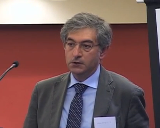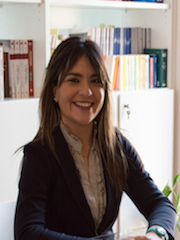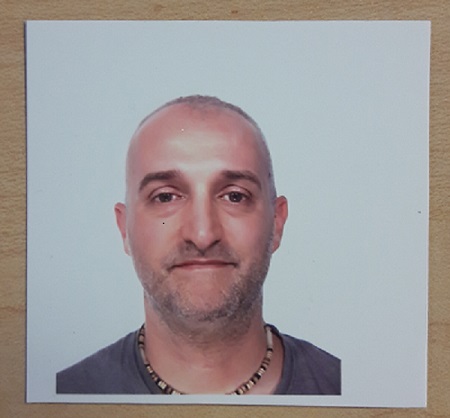Studying at the University of Verona
Here you can find information on the organisational aspects of the Programme, lecture timetables, learning activities and useful contact details for your time at the University, from enrolment to graduation.
Academic calendar
The academic calendar shows the deadlines and scheduled events that are relevant to students, teaching and technical-administrative staff of the University. Public holidays and University closures are also indicated. The academic year normally begins on 1 October each year and ends on 30 September of the following year.
Course calendar
The Academic Calendar sets out the degree programme lecture and exam timetables, as well as the relevant university closure dates..
| Period | From | To |
|---|---|---|
| Sem. 1A | Sep 21, 2020 | Oct 31, 2020 |
| Sem. 1B | Nov 9, 2020 | Jan 9, 2021 |
| Sem. 2A | Feb 15, 2021 | Apr 1, 2021 |
| Sem. 2B | Apr 14, 2021 | May 29, 2021 |
| Session | From | To |
|---|---|---|
| Sessione d'esame invernale | Jan 14, 2021 | Feb 13, 2021 |
| Sessione d'esame estiva | Jun 7, 2021 | Jul 24, 2021 |
| Sessione d'esame autunnale | Aug 23, 2021 | Sep 18, 2021 |
| Session | From | To |
|---|---|---|
| Sessione di laurea estiva | Jul 5, 2021 | Jul 10, 2021 |
| Sessione di laurea autunnale | Nov 8, 2021 | Nov 13, 2021 |
| Sessione di laurea invernale | Mar 28, 2022 | Apr 1, 2022 |
| Period | From | To |
|---|---|---|
| Festa di Ognissanti | Nov 1, 2020 | Nov 1, 2020 |
| Festa dell'Immacolata | Dec 8, 2020 | Dec 8, 2020 |
| Vacanze di Natale | Dec 24, 2020 | Jan 6, 2021 |
| Vacanze di Pasqua | Apr 2, 2021 | Apr 6, 2021 |
| Festa della liberazione | Apr 25, 2021 | Apr 25, 2021 |
| Festa del lavoro | May 1, 2021 | May 1, 2021 |
| Festa del Santo Patrono | May 21, 2021 | May 21, 2021 |
| Festa della Repubblica | Jun 2, 2021 | Jun 2, 2021 |
| Vacanze estive | Aug 9, 2021 | Aug 15, 2021 |
Exam calendar
Exam dates and rounds are managed by the relevant Humanistic Studies Teaching and Student Services Unit.
To view all the exam sessions available, please use the Exam dashboard on ESSE3.
If you forgot your login details or have problems logging in, please contact the relevant IT HelpDesk, or check the login details recovery web page.
Should you have any doubts or questions, please check the Enrollment FAQs
Academic staff
 stefania.annechini@univr.it
stefania.annechini@univr.it
 roberto.dallachiara@univr.it
roberto.dallachiara@univr.it
 giorgia.decarli@univr.it
giorgia.decarli@univr.it
 annamaria.giarola@univr.it
annamaria.giarola@univr.it
 luciano.pasqualotto@univr.it
luciano.pasqualotto@univr.it
 antonella.salvan@univr.it
antonella.salvan@univr.it
 carlo.soregotti@univr.it
carlo.soregotti@univr.it
 giorgio.zoccatelli@univr.it
giorgio.zoccatelli@univr.it
Study Plan
The Study Plan includes all modules, teaching and learning activities that each student will need to undertake during their time at the University.
Please select your Study Plan based on your enrollment year.
1° Year
| Modules | Credits | TAF | SSD |
|---|
2° Year activated in the A.Y. 2021/2022
| Modules | Credits | TAF | SSD |
|---|
3° Year activated in the A.Y. 2022/2023
| Modules | Credits | TAF | SSD |
|---|
1 module between the following| Modules | Credits | TAF | SSD |
|---|
| Modules | Credits | TAF | SSD |
|---|
| Modules | Credits | TAF | SSD |
|---|
1 module between the followingLegend | Type of training activity (TTA)
TAF (Type of Educational Activity) All courses and activities are classified into different types of educational activities, indicated by a letter.
Psychological development: risk and resources (2020/2021)
Teaching code
4S007384
Teacher
Coordinator
Credits
6
Language
Italian
Scientific Disciplinary Sector (SSD)
M-PSI/04 - DEVELOPMENTAL AND EDUCATIONAL PSYCHOLOGY
Period
Sem. 2B dal Apr 14, 2021 al May 29, 2021.
Learning outcomes
General Learning outcomes Knowledge and understanding - Knowledge and understanding of the determinants of bio-psycho-social wellbeing (with particular attention to the main social problems often faced by social workers) Ability to apply knowledge and understanding - Ability to recognize the main causes of people’s needs and to distinguish among their social, family, and personal roots, focusing on their reciprocal relations SPECIFIC OBJECTIVES The course aims at offering some conceptual and methodological instruments necessary to know and understand the psychological processes characterizing psychosocial risk and resources during development, according to the perspective of developmental psychology. By the end of the course, the students will have to demonstrate knowledge and understanding of the determinants of bio-psycho-social wellbeing; ability to recognize the main causes of risk and to distinguish among their social, familial and personal roots, underlying the corresponding resources; autonomous assessment of the methodologies concerning the intervention on the psychosocial risk; communication skills regarding the scientific language of psychology; ability to integrate into working teams.
Program
The syllabus is divided into three parts:
(A) Psychosocial development.
• Cognitive development.
• Linguistic development.
• Social development.
• Emotional development.
(B) Psychosocial risk and resources during childhood.
• Psychological processes during childhood: development in the cognitive, social, and emotional domain.
• Basic constructs: adjustment, risk and protection factors; stress and traumatic events; psychological vulnerability and resilience.
• Definitions, theoretical models, role of individual and contextual factors, evaluation instruments.
• Situations of psychosocial risk during childhood and adolescence: children/adolescents with parents affected by psychopathology, maltreated and abused, belonging to minorities, with separated or divorced parents, adopted, etc.
(C) Emotional prevention and disasters.
• Impact of natural and technological disasters (earhquakes, floods, fires, pandemics, etc.) on psychological development.
• Psychological disasters before and after disasters.
• Emotional competence as a resource to cope with disasters.
• Training on emotional prevention on seismic risk with primary school children.
Teaching activities
The course will include frontal lessons, aiming at transmitting basic notions, integrated by cooperative learning, aiming at deepening the knowledge of specific aspects of the syllabus, in particular through the study of research papers. The content of the texts and the lessons is coherent with the syllabus. Further didactic materials are available from the teacher.
During the whole academic year, in addition, the teacher will receive the students individually, at the times indicates in the website (it is not necessary to arrange specific appointments) which are constantly updated.
During the first lesson, the teacher will present the whole calendar of the didactic activities with dates and topics of the lessons, specifying the time and the rooms.
Texts for the exam:
Santrock., J. W. (in stampa). Psicologia dell’educazione. McGraw-Hill.
Inguglia, C., & Lo Coco, A. (2013). Resilienza e vulnerabilità psicologica nel corso dello sviluppo. Il Mulino.
Raccanello, D., Vicentini, G., & Burro, R. (in stampa). Prevenzione Emotiva e Terremoti nella scuola primaria. Il progetto PrEmT. Un training sui terremoti e sulle emozioni. McGraw-Hill.
| Author | Title | Publishing house | Year | ISBN | Notes |
|---|---|---|---|---|---|
| Raccanello, D., Vicentini, G., Burro, R. | PREVENZIONE EMOTIVA E TERREMOTI. UN PERCORSO PER BAMBINI | McGraw-Hill | 2021 | ||
| Santrock J. | Psicologia dell'educazione | McGraw-Hill | 2021 | ||
| Inguglia, C., & Lo Coco, A. | Resilienza e vulnerabilità psicologica nel corso dello sviluppo | Bologna: Il Mulino | 2013 |
Examination Methods
The aim of the exam is to verify the extent to which the expected learning results are achieved, in terms of knowledge and understanding abilities, both theoretical and applied.
The exam is formed by a written part and an optional oral part. Both of them cover the whole syllabus. For the written part, there are ten definitions and four open-ended questions. The duration of the written part is one hour. The oral part is optional, and it consists of an integrative interview requested by the student, after passing the written part.
In particular:
• Knowledge and ability of understanding factors associated with bio-psycho-social wellbeing, applied knowledge and ability of understanding focused on the factors underlying risks, and autonomy of judgment, in terms of critical evaluation of methodologies and interventions concerning psychosocial risk during childhood and during adolescence, will be evaluated examining the responses to the open-ended questions, assessing: (a) the possession of the required knowledge, (b) the argumentative abilities, (c) the critical ability to identify strength and weakness of contents.
• Communicative abilities in terms of competences and instruments to communicate and manage information will be assessed mainly examining definitions in the written part, in which it is requested to use the appropriate lexicon typical of the scientific language of psychology.
• Capacity of learning in terms of abilities to work in groups will be evaluated in itinere, assessing how the cooperative learning activities are conducted.
The evaluation of the exam is expressed in thirties. For the written part, there will be maximum one point for each definition and maximum five points for each answer to open-ended questions. For the oral part, there will be maximum three points.
The exam will be equal for those students who attend and those who do not attend the lessons.
Due to the current Coronavirus-related emergency, the above-mentioned description of the exam is modified as follows, according to the indications from the University of Verona. The exam is formed by closed-ended questions referred to the whole syllabus. The exam will be carried out online. After that the possibility to subscribe for the exam will be closed, I will send to the students an email with the indications on the exams.
Type D and Type F activities
Modules not yet included
Career prospects
Module/Programme news
News for students
There you will find information, resources and services useful during your time at the University (Student’s exam record, your study plan on ESSE3, Distance Learning courses, university email account, office forms, administrative procedures, etc.). You can log into MyUnivr with your GIA login details: only in this way will you be able to receive notification of all the notices from your teachers and your secretariat via email and soon also via the Univr app.
Student mentoring
Linguistic training CLA
Gestione carriere
Practical information for students
Documents
| Title | Info File |
|---|---|
|
|
pdf, it, 325 KB, 02/05/23 |
|
|
pdf, it, 212 KB, 02/05/23 |
|
|
pdf, it, 131 KB, 02/05/23 |
Graduation
Documents
| Title | Info File |
|---|---|
|
|
pdf, it, 99 KB, 13/10/23 |
|
|
pdf, it, 101 KB, 10/04/24 |
List of theses and work experience proposals
| theses proposals | Research area |
|---|---|
| Proposta tesi | Various topics |
Assistente Sociale
Comune e Università di Verona collaborano per la formazione alla professione di assistente sociale.
Professione Assistente Sociale
Pagina aggiornata il 18/1/2022
Stage e Tirocini
Le attività̀ di tirocinio degli studenti si svolgono presso strutture esterne, convenzionate con l’Università degli Studi di Verona ai sensi delle vigenti disposizioni in materia. Nelle strutture esterne gli studenti svolgono le attività di tirocinio sotto la responsabilità di un assistente sociale (Tutor-supervisore), appartenente a dette strutture, coordinato a sua volta dal responsabile del tirocinio presso il Corso di Studio.
In assenza di un assistente sociale, operante nella struttura esterna, il Collegio didattico, per quanto di competenza, decide, su proposta dei responsabili del tirocinio, in ordine alle condizioni per l’effettuazione o la prosecuzione delle attività di tirocinio degli studenti interessati. Le attività di tirocinio sono obbligatorie per almeno 450 ore.
Il Collegio didattico, in deroga alle disposizioni del presente articolo, può consentire a studenti che si trovino in particolari condizioni, in specie se disabili, lavoratori o impegnati in organismi collegiali dell’Università degli Studi di Verona, di non ottemperare in parte all’obbligo di frequenza alle attività di tirocinio, predisponendo forme alternative di tirocinio, anche tramite supporti telematici e multimediali interattivi.
I responsabili delle attività di tirocinio presso il Corso di Studio, anche avvalendosi di appositi collaboratori o tutori esterni, accertano la presenza degli studenti presso le rispettive strutture. A tal fine utilizzano un apposito libretto di frequenza per ciascuno studente.
Al termine dell’attività di tirocinio, lo studente deve presentare una relazione scritta al responsabile di tale attività presso il Corso di Studio. Lo studente elabora la relazione scritta, controfirmata dal Tutor-supervisore. La relazione finale viene valutata dal responsabile del tirocinio presso il Corso di Studio e deve tenere conto degli obiettivi prefissati dal Collegio didattico.
La valutazione viene attribuita al tirocinio nel seguente modo: sufficiente = 1; buono = 2; ottimo = 3; eccellente = 4 e verrà aggiunta alla media dei voti del curriculum al momento della discussione della tesi.
Gli Uffici della Direzione Didattica e Servizi agli Studenti predispongono la documentazione necessaria allo svolgimento delle attività̀ di tirocinio, comprese attestazioni e certificazioni.
Nel caso in cui lo studente partecipi a programmi di mobilità internazionale, le attività̀ di tirocinio vengono regolamentate come segue:
A – Lo studente svolge il Tirocinio presso la sede estera.
Se lo studente svolge il Tirocinio all’estero si ritengono assolti gli obbligo relativi al Laboratorio se:
- - lo studente aggiorna il proprio docente/tutor con brevi relazioni mensili da inviare mezzo mail, sull’andamento del lavoro svolto presso la sede estera;
- - produce una relazione finale completa del tirocinio svolto.
La valutazione finale del laboratorio di guida al tirocinio sarà̀ effettuata da parte del tutor del laboratorio sulla base della relazione dello studente tenendo conto della eventuale valutazione da parte del supervisore estero.
B – Lo studente non svolge il Tirocinio presso la sede estera.
Se lo studente non svolge il Tirocinio nella sede estera e lo deve fare al rientro:
lo studente effettua uno/due incontri individuali iniziali con il docente/tutor in cui predisporre quanto necessita per l’avvio del tirocinio e nei quali verranno forniti materiali, griglie ed eventuali testi di riferimento;
invia brevi relazioni mensili sull’andamento del tirocinio che sarà svolto in Italia al di fuori del periodo in cui si tiene il laboratorio di guida al tirocinio;
produce la relazione finale completa del tirocinio svolto”.
- Tutte le informazioni in merito agli stage per futuri studenti sono disponibili alla pagina Stage e tirocini.
- Tutte le informazioni in merito agli stage per studenti iscritti sono pubblicate in MyUnivr - come fare per - stage e tirocini.
- Tutte le informazioni in merito agli stage per le aziende sono disponili alla pagina Stage e tirocini per azienze.

 045 8124930
045 8124930





















